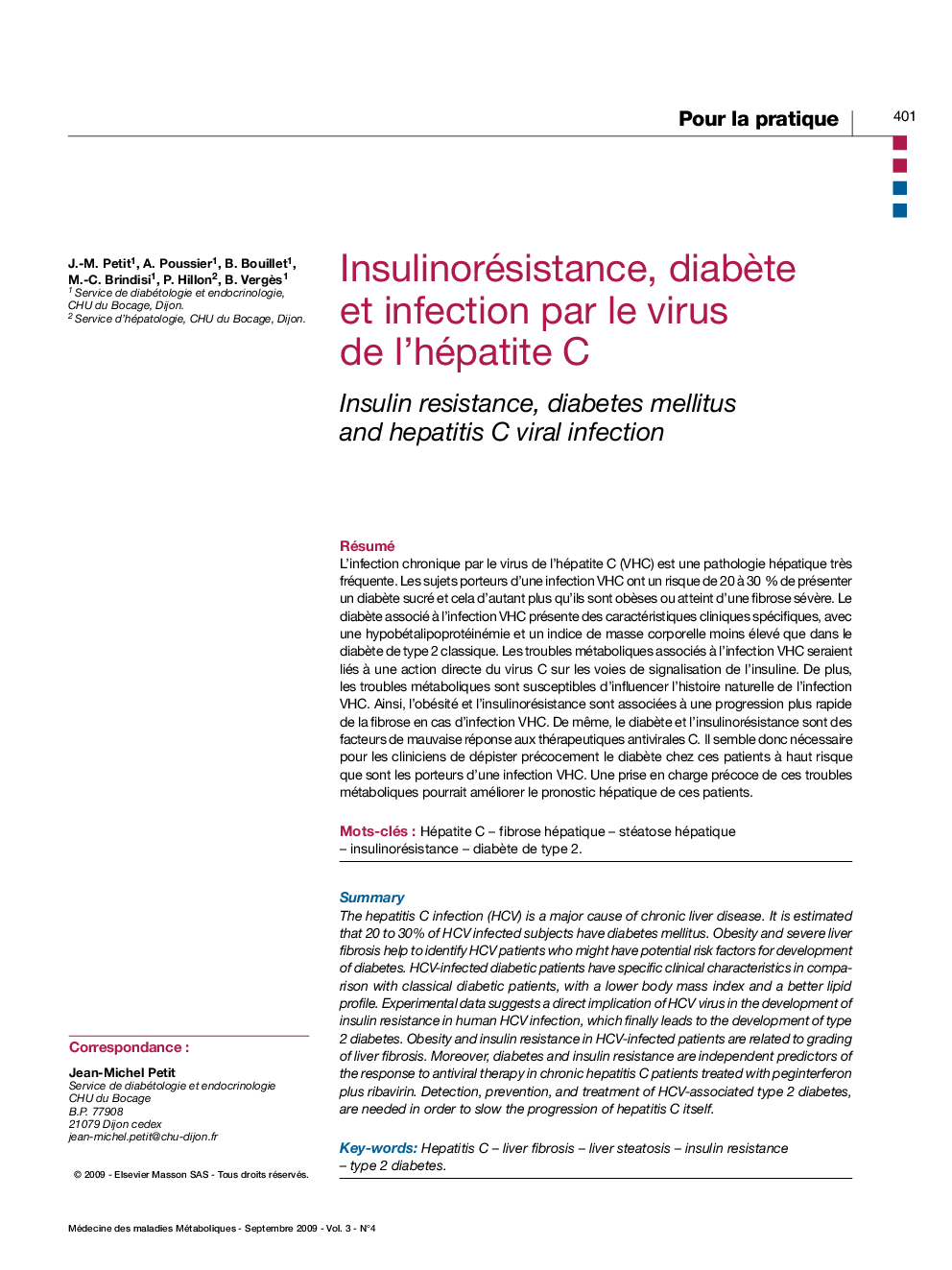| Article ID | Journal | Published Year | Pages | File Type |
|---|---|---|---|---|
| 3275265 | Médecine des Maladies Métaboliques | 2009 | 5 Pages |
Abstract
The hepatitis C infection (HCV) is a major cause of chronic liver disease. It is estimated that 20 to 30% of HCV infected subjects have diabetes mellitus. Obesity and severe liver fibrosis help to identify HCV patients who might have potential risk factors for development of diabetes. HCV-infected diabetic patients have specific clinical characteristics in comparison with classical diabetic patients, with a lower body mass index and a better lipid profile. Experimental data suggests a direct implication of HCV virus in the development of insulin resistance in human HCV infection, which finally leads to the development of type 2 diabetes. Obesity and insulin resistance in HCV-infected patients are related to grading of liver fibrosis. Moreover, diabetes and insulin resistance are independent predictors of the response to antiviral therapy in chronic hepatitis C patients treated with peginterferon plus ribavirin. Detection, prevention, and treatment of HCV-associated type 2 diabetes, are needed in order to slow the progression of hepatitis C itself.
Keywords
Related Topics
Health Sciences
Medicine and Dentistry
Endocrinology, Diabetes and Metabolism
Authors
J.-M. Petit, A. Poussier, B. Bouillet, M.-C. Brindisi, P. Hillon, B. Vergès,
